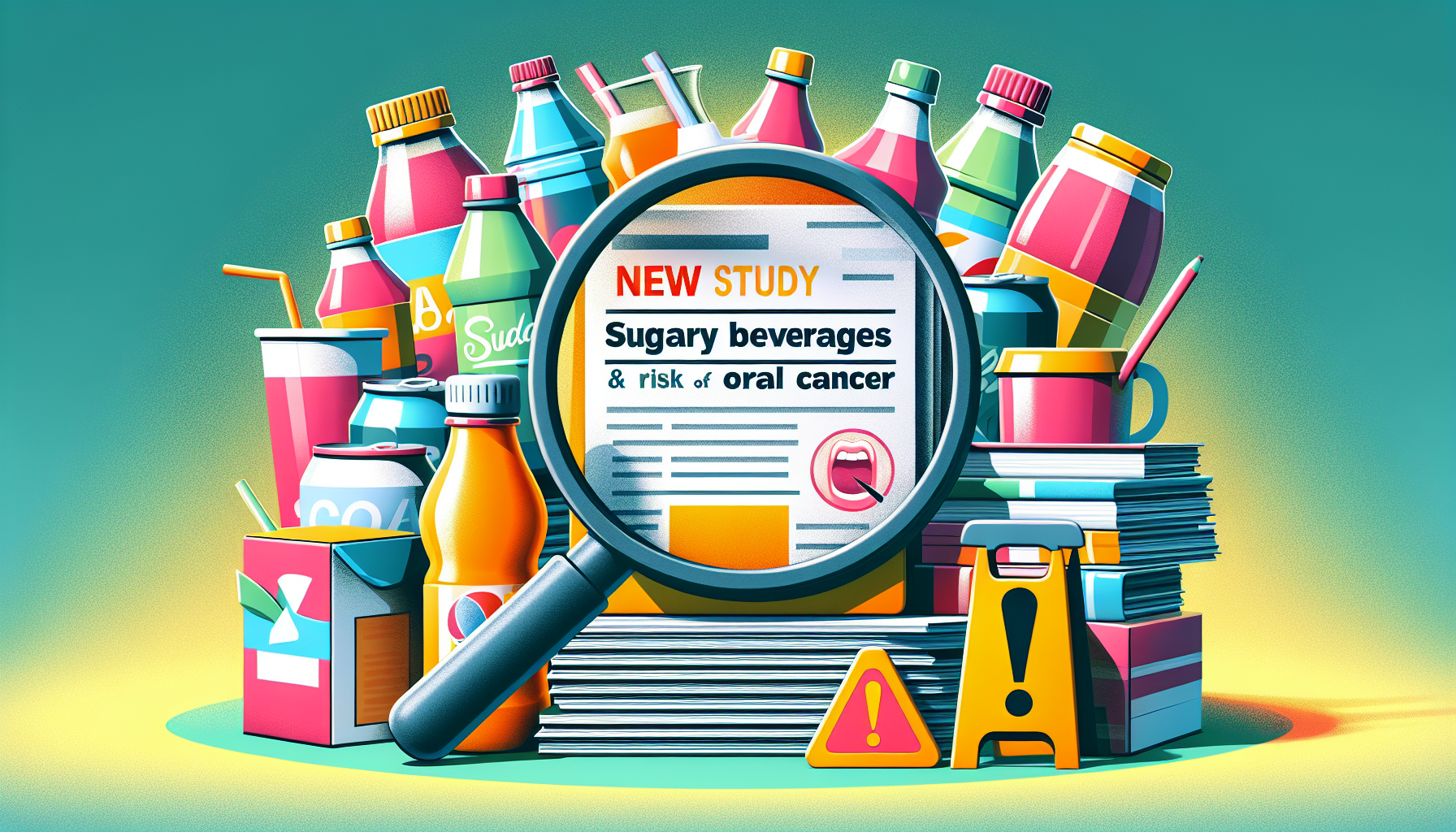Are Sugary Beverages Putting You at Risk? The Surprising Link to Oral Cancer
Did you know that your daily can of soda might be doing more harm than just adding extra calories? Recent studies suggest that sugary beverages could be significantly increasing the risk of developing oral cancer. Here's a deep dive into what this means and why it matters.
A Surprising Finding: Soda and Cancer Risk
Can your favorite fizzy drink increase cancer risk? According to research highlighted by the Daily Mail, the answer might be yes. Scientists at Washington University in the US conducted a comprehensive study involving over 160,000 women. Their findings were daunting: women who consumed at least one sugary soda a day had nearly five times the risk of developing oral cancer compared to those who did not consume these beverages regularly.
The study zeroed in on a large group of women, out of which approximately 20,000 reported drinking one or more cans of soda daily. The startling outcome was that their chances of developing mouth cancer were nearly 4.87 times higher than others. This data suggests a compelling link between soda consumption and oral health risks.
Understanding the Culprit: High-Fructose Corn Syrup
What's in the soda? One of the key suspects behind this increased risk is high-fructose corn syrup, commonly used as a sweetener in many sodas. But why is it so damaging?
High-fructose corn syrup can alter the environment in your mouth in such a way that it may encourage the growth of harmful bacteria. These bacteria could potentially lead to inflammation and cellular changes, which might, over time, become cancerous. Although this connection is still under study, it's a reminder of how ingredients we consume daily can impact our health in unexpected ways.
Exploring the Research Boundaries
Despite the alarming findings, there's more research to be done. The current study focused solely on women, which raises the question: do the same risks apply to men? The researchers acknowledge this limitation and are gearing up to expand their study to include a more diverse group of participants.
Furthermore, while the study emphasizes a correlation, it does not establish direct causation—meaning that while there’s a notable association, other factors could also be at play. This distinction is crucial in scientific research, as it guides further investigation into the precise mechanisms at work.
Sugar's Not-So-Sweet Tale: A Broader Health Concern
Sodas aren’t new to health professionals sounding alarms. Excessive sugar consumption has been linked to numerous health problems beyond oral cancer, including obesity, diabetes, and heart disease. The extra calories from soda—without nutritional benefits—are a quick path to weight gain, which carries its own risks for various forms of cancer and metabolic disorders.
This mounting evidence fuels a broader public health push to reduce sugary drink consumption. From school cafeterias to workplace vending machines, there's a growing movement towards healthier alternatives like water, herbal teas, or drinks with no added sugars.
Personal Reflection: What’s In Your Fridge?
How do our daily choices reflect our awareness of health risks? It's easy to overlook the cumulative effect of small habits, like grabbing a can of soda during a lunch break. But each small choice contributes to our overall health path.
Reevaluating what we consume and understanding its impact is a personal yet impactful step. Maybe it’s time to replace that soda with something healthier and rethink our relationship with daily indulgence.
Concluding Thoughts: A Sip Towards Change
The extent to which sugary sodas affect our health continues to unfold, and this recent study adds a new dimension to the dialogue about diet and cancer risk. For individuals and communities alike, the challenge—and opportunity—lies in making informed decisions that prioritize well-being.
So, next time you reach for a sugary drink, consider the potential consequences and explore the world of healthier, refreshing alternatives. Your future self might thank you for it.
What’s your take on sugary beverages? Can these findings inspire a shift in daily habits or public health policies? Share your thoughts below and join the conversation on how best to balance modern life and health aspirations.

